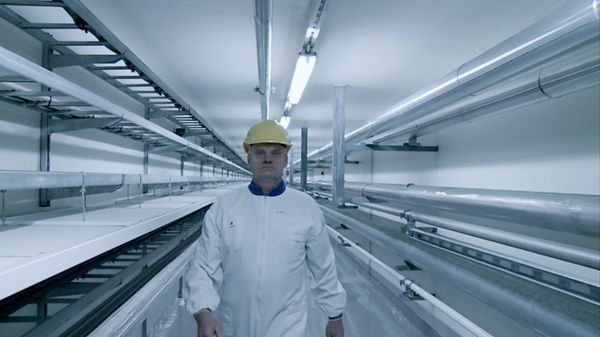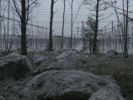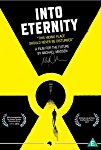Eye For Film >> Movies >> Into Eternity (2010) Film Review
Into Eternity
Reviewed by: Jennie Kermode

Nuclear power: it used to be controversial, but as concern grows over carbon emissions and climate change, it's getting less so. Improved safety measures can, we hope, make accidents less likely. That risk aside, it's clean, efficient, and desperately needed. There's just one major problem: what do we do with the waste?
Into Eternity considers and quickly discards the populist solutions. Send it into space? Sounds great, until a rocket blows up on the launch pad or a decaying orbit drops it suddenly on a random bit of the planet. Stick it down underneath the sea? That's far away from us but, unfortunately, not so far from the base of the food chain on which we depend. Store it? That's the plan. But how does one store something that will remain dangerous for a hundred thousand years, through natural disasters, probable wars, the fall and rise of civilisations, even an ice age? How do we warn those who may come after us, who may have no memory of us at all, that this storage space - a cavern deep below the earth in northern Finland - is a place where they should never go?

It's an awesome question, and this film doesn't try to address it purely with reasoning, which seems a slender thing against the weight of ages. There's plenty of sharp thinking here, plenty of insight, but there's also a poetic engagement with the scale of the task. The film opens with an address to the visitors of the future, made by a man standing in darkness with only a candle to guide him. It's history, for the, but it has the character of myth. This is Onkolo, the hiding place, the place we must remember to forget. It is not a treasure trove, not an archaeological resource, not a religious site; it is a site which neither curiosity nor greed, nor desperation, nor the simple human need for shelter, must ever tempt us to explore.
No human structure has survived a tenth of this time, we are informed, only slightly inaccurately. Our oldest myths go back just a few thousand years. Somehow, amid the frozen forests and the darkness of the cavern below, it's easier to contemplate the enormous scale of time. Perhaps this is an area where art has as much to contribute as science. Sculpture, paintings, even opera, may trigger a more visceral impulse to avoid the place. But one thing we can say with some certainty is that anyone who does go looking for it, tens of thousands of years from now, is unlikely to be human in the way we understand it today. Will they even have the same senses?
This is a powerfully atmospheric film that goes beyond the conventional techniques of documentary to communicate concepts we might otherwise struggle to grasp. The brief contact we make with the people whose duty has brought them here only serves to make their stories more intriguing. They are our guardians; they are our gravediggers. There is a sense that, in Onkolo, we are burying the secret shame of our civilisation.
Reviewed on: 18 Oct 2010
















